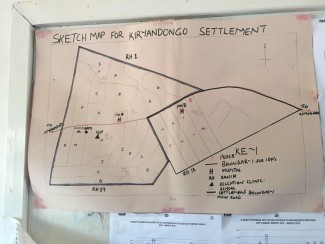World Refugee Week

Last week was World Refugee Week and World Refugee Day was on June 20. UNODC showed solidarity on social media to mark that day.
UNODC has piloted family skills programmes in line with the International Standard on Drug Use Prevention to address the needs of refugee families. Children in challenged settings are at increased risk of mental health difficulties and engagement in risky behaviours including drug/substance use, violence and crime. The UNODC Strong Families programme is specifically tailored for those children and families. More than 2000 families in challenging settings, including refugees and/or in conflict/post-conflict situation were reached with training on essential parenting skills.
Moreover, UNODC supported the development of a protocol to study the prevention and treatment needs of people living in refugee settings. UNODC conducted assessments of available prevention and treatment services in Pakistan and Uganda, as substance use disorders is still a public health issue for displaced populations. This involved rapid literature reviews and fieldwork conducted by a team of researchers.
Results in Uganda suggested that substance-related problems were of concern to the refugee population. The main substances of concern, predominantly among men, were alcohol, cannabis, khat, tobacco, and, in the urban settings, heroin, and cocaine including by injection, with the emergence of methamphetamine use. In Pakistan, the mobility of young men who inject drugs between refugee villages and cities, low levels of knowledge about HIV transmission, limited access to prevention and early intervention is overlaid on an already documented concentrated epidemic among people who inject drugs in Pakistan.
In both settings, access to health care and prevention and treatment services was limited. These study results inform the development and implementation of cost-effective interventions with regard to prevention, treatment and care services in relief and humanitarian settings. Based on these findings UNODC is aiming to develop a protocol on interventions for the provision of evidence-based services in humanitarian settings.